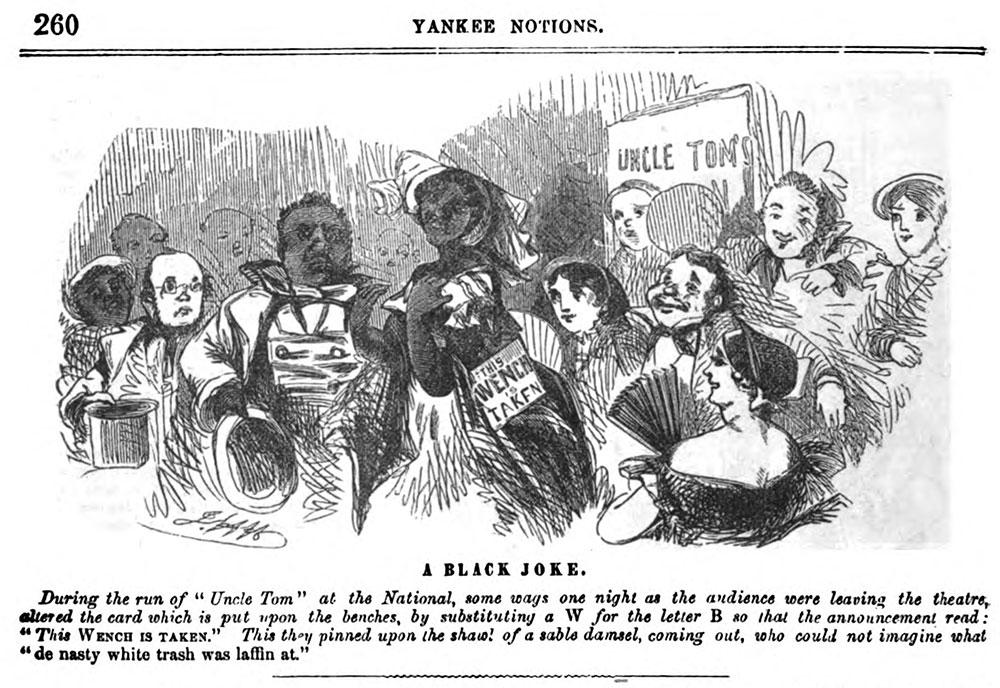Free African Americans living in the North before the Civil War suffered enormous disadvantages and discriminations. Forced to sit in separate and inferior sections in theaters, public transit, and churches, free Blacks were also barred from all but the most menial jobs and denied entrance to white trade unions. This racist cartoon in an 1854 edition of the humor magazine Yankee Notions inadvertently illustrated the everyday harassment and cruelty to which northern African Americans were subjected. At a performance of a play based on Harriet Beecher Stowe's antislavery novel, Uncle Tom's Cabin, some white members altered a seat reservation card and, to the derisive laughter of the rest of the audience, pinned it on a Black woman’s shawl.
English
Caption


